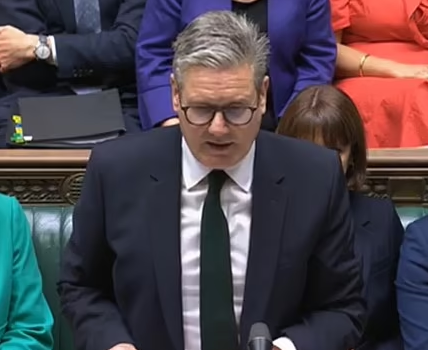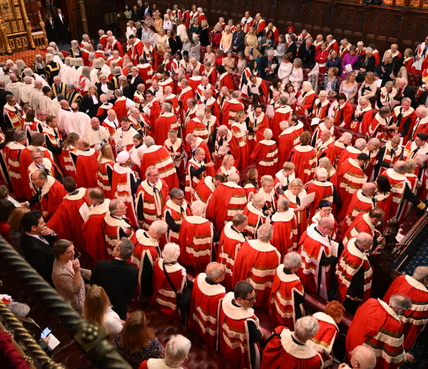Rachel Reeves warned £50bn spending spree will cause ‘mortgage misery’ for millions! B
An internal Treasury document has suggested that easing borrowing rules to increase spending could hike mortgage costs for millions.
Rachel Reeves has been warned that plans to increase borrowing by £50 billion would cause “mortgage misery” for millions of homeowners.
Analysis by the Chancellor’s own officials has revealed her plot to change Britain’s borrowing rules could mean increased mortgage costs, The Telegraph reported.
Ms Reeves is expected to ease borrowing rules to hike spending in her October 30 budget – a process known as “fiscal loosening”.
But an official Treasury report is said to warn that for every £25 billion in additional borrowing, interest rates could increase by anywhere from 0.5 and 1.25 percentage points.
It has led to fears among Treasury insiders that an expected extra £50 billion on the Government credit card could trigger a huge rise in mortgage costs for families.

The chancellor is being warned plans to increase borrowing could have consequences for millions (Image: Getty)
With interest rates currently standing at 5 percent, a worst-case-scenario rise to 6.25 percent would add around £200 a month to the typical mortgage repayment – just as rates were starting to cool.
In a dramatic intervention, Tory shadow chancellor Jeremy Hunt last night urged the Office for Budget Responsibility to halt the plans. Mr Hunt said the watchdog should block any changes to borrowing rules, citing the fact Britain’s debt pile recently surpassed 100 percent of GDP for the first time since the 1960s.
He said: “The consistent advice I received from Treasury officials was always that increasing borrowing meant interest rates would be higher for longer – and punish families with mortgages.
“That would be a hammer blow and lead to mortgage misery for many people just at the moment the Bank of England is expected to bring interest r ates back down.”
Despite the stark warnings, Ms Reeves has insisted she will borrow to fund a capital investment programme, repeatedly pledging to “invest, invest, invest”. Sir Keir Starmer previously admitted Labour’s first budget in charge will be “painful”, with tax levers pulled to plug a £22 billion gap in public finances.
Carl Emmerson, deputy director of the Institute for Fiscal Studies, told The Telegraph: “If you borrow a lot you are taking more of a risk that interest rates will be higher in response. One lesson for Rachel Reeves is to be cautious about borrowing because there is a risk to interest rates.
“Some will have savings and will endure higher interest rates on their savings. The main risk you would worry about is people’s mortgages being a bit more expensive.”
A Treasury spokesperson responded: “This analysis is clear that the relationship between fiscal plans, inflation and interest rates is complicated and can change significantly over time. The Chancellor has repeatedly said she will not play fast and loose with the public finances and will protect working people.”



